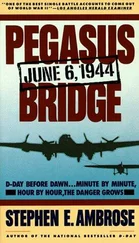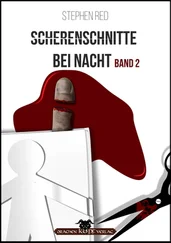Stephen Ambrose - Band of Brothers
Здесь есть возможность читать онлайн «Stephen Ambrose - Band of Brothers» весь текст электронной книги совершенно бесплатно (целиком полную версию без сокращений). В некоторых случаях можно слушать аудио, скачать через торрент в формате fb2 и присутствует краткое содержание. Жанр: История, на английском языке. Описание произведения, (предисловие) а так же отзывы посетителей доступны на портале библиотеки ЛибКат.
- Название:Band of Brothers
- Автор:
- Жанр:
- Год:неизвестен
- ISBN:нет данных
- Рейтинг книги:4 / 5. Голосов: 1
-
Избранное:Добавить в избранное
- Отзывы:
-
Ваша оценка:
- 80
- 1
- 2
- 3
- 4
- 5
Band of Brothers: краткое содержание, описание и аннотация
Предлагаем к чтению аннотацию, описание, краткое содержание или предисловие (зависит от того, что написал сам автор книги «Band of Brothers»). Если вы не нашли необходимую информацию о книге — напишите в комментариях, мы постараемся отыскать её.
Band of Brothers — читать онлайн бесплатно полную книгу (весь текст) целиком
Ниже представлен текст книги, разбитый по страницам. Система сохранения места последней прочитанной страницы, позволяет с удобством читать онлайн бесплатно книгу «Band of Brothers», без необходимости каждый раз заново искать на чём Вы остановились. Поставьте закладку, и сможете в любой момент перейти на страницу, на которой закончили чтение.
Интервал:
Закладка:
Sgt. Robert "Burr" Smith also stayed in the paratroopers, where he got a commission and eventually became a lieutenant colonel. He commanded a Special Forces Reserve unit in San Francisco. In December 1979, he wrote to Winters: "Eventually my reserve assignment led me to a new career with a government agency, which in turn led to eight years in Laos as a civilian advisor to a large irregular force. I continued to jump regularly until 1974, when lack of interest drove me to hang gliding, and that has been my consuming passion ever since... . For the present I am assigned as a special assistant to the Commander of Delta Force, the counter-terror task force at Fort Bragg. My specialties are (surprise! surprise!): airborne operations, light weapons, and small unit operations.
"My office is on Buckner Road, right across the street from where we were just before leaving for England. The old buildings are exactly as you last saw them and are still in daily use... .
"Funny thing about 'The Modern Army,' Dick. I am assigned to what is reputed to be the best unit in the U.S. Army, the Delta Force, and I believe that it is. Still, on a man-for-man basis, I'd choose my wartime paratroop company any time! We had something there for three years that will never be equalled."
He was scheduled to go on the mission to Iran to rescue the hostages in 1980, but when the CIA learned this, it forbade him to go because he knew so many secrets. "So, I missed what certainly would have been the last adventure in my life," he wrote Winters. "I had lived, worked and trained with Delta every day for nearly two years, Dick, and I Hated to be left behind."
That got Smith going on leadership. He wrote of Winters, "You were blessed (some would say rewarded) with the uniform respect and admiration of 120 soldiers, essentially civilians in uniform, who would have followed you to certain death. I've been a soldier most of my adult life. In that time I've met only a handful of great soldiers, and of that handful only half or less come from my WWII experience, and two of them came from OP Easy—you and Bill Guarnere. The rest of us were O.K... . good soldiers by-and-large, and a few were better than average, but I know as much about 'Grace Under Pressure' as most men, and a lot more about it than some. You had it."
In 1980, riding an experimental hang-glider, Smith crashed and suffered severe injuries. In operating on his lungs, the doctors discovered a cancer. Rader, who had pulled Smith out of a flooded field on June 6, 1944, visited him in the hospital. They played a name game—one would call out the name of a Toccoa man, the other would supply a brief word portrait. Shortly thereafter, Smith died.
Sgt. Amos "Buck" Taylor spent a quarter-century with the CIA, working in the Far East Division of the Covert Operation Directorate, sometimes in Washington, often overseas. He won't say much about what he did, except that "the big threat to our country in that part of the world was Communist China and of course the USSR. That will give you some idea of the focus of my work. So much for that."
When Captain Speirs got back to England in the summer of 1945, he discovered that the English "widow" he had married, and who had borne his son, wasn't a widow at all. Her husband reappeared from a P.O.W. camp. She chose him over Speirs, and the couple kept all the loot Speirs had shipped back from Europe. He decided to stay in the Army. He made a combat jump in Korea and commanded a rifle company on the line in that war. In 1956 he attended a Russian language course in Monterey, California, and then was assigned to Potsdam, East Germany, as liaison officer with the Soviet Army. In 1958 he became the American governor of Spandau Prison, Berlin, where Rudolf Hess was serving his life term. In 1962 he went to Laos with the U.S. mission to the Royal Lao Army.
When old E Company men call him today and open the conversation by saying, "You won't remember me, but we were together during the war," Speirs replies, "Which war?" His son Robert, born in England during the war, is an infantry major in the King's Royal Rifle Corps, the "Green Jackets," and Speirs's "pride and joy."
David Webster could not understand how anyone could stay in the Army. He wanted to be a writer. He moved to California and paid his bills with a variety of odd jobs as he wrote and submitted articles and a book on his wartime experiences. He placed many of the articles, the top being in The Saturday Evening Post, but he could not find a publisher for his book. He became a reporter, first with the Los Angeles Daily News, then with the Wall Street Journal. In 1951 he married Barbara Stoessel, an artist and sister of Walter J. Stoessel, Jr., who became U.S. ambassador to Poland, the Soviet Union, and West Germany.
Webster had always been fascinated by sharks. Barbara writes, "The shark, for him, became a symbol of everything that is mysterious and fierce about the sea. He began gathering material for a book of his own. His research went on for years. He studied sharks first-hand, underwater, swimming among them; and caught many, fishing with a handline from his 11-foot sailing dinghy which he had named Tusitala, which means Teller of Tales.' " He wrote the book and submitted it twenty-nine times, but could not convince a publisher that anyone wanted to read about sharks.
On September 9, 1961, Webster set sail from Santa Monica with squid bait, a heavy line, and hook for shark fishing. He never came back. A search the next day discovered the Tusitala awash 5 miles offshore. One oar and the tiller were missing. His body was never found.
Barbara was able to get his book on sharks published (Myth and Maneater, W. W. Norton &. Co., 1963). There was a British edition and a paperback edition in Australia. When Jaws was released in 1975, Dell issued a mass-market paperback.
Three of the sergeants became rich men. John Martin attended Ohio State University on his G.I. Bill money, then returned to his railroad job. He became a supervisor, had a car, secretary, and pension building and was making money on the side by building houses on speculation. In 1961 he gave it all up and, over the intense protest of his wife and children, then in high school, moved to Phoenix, Arizona, and started building homes. He had $8,000 in total capital, and everyone thought he was crazy. At the end of the first year, he paid more in taxes than he had ever made working for the railroad. Soon he was building apartment complexes and nursing homes. He expanded his activities into Texas and Montana. In 1970 he bought a cattle ranch in the mountains of western Montana. Today he is a multimillionaire. He still likes to take risks, although he no longer jumps out of airplanes. He has resisted tempting offers to sell his business; the president of Martin Construction today is John Martin, while his wife Patricia is the vice president and treasurer. They are also the directors and sole stockholders.
Don Moone used his G.I. Bill benefits to attend Grinnell College, then went into advertising. He rose rapidly. In 1973 he became the president of Ketchum, MacLeod & Grove, Inc., a major New York City advertising firm. Four years later, at age fifty-one, he retired, built a home in Florida, and has lived there since in some splendor.
Carwood Lipton majored in engineering at Marshall College (now University), while his wife Jo Anne was bearing three sons. Lipton went to work for Owens-Illinois, Inc. He rose steadily in the firm; in 1971 he moved to London as director of manufacturing for eight glass factories in England and Scotland. In 1974 he went to Geneva, Switzerland, in charge of operations in Europe, the Middle East, and Africa. In 1975 Jo Anne died of a heart attack. The next year, Lipton married a widow, Marie Hope Ma-honey, whose husband had been a close friend of Lipton's, just as Marie was a close friend of Jo Anne's. At the request of the CEO of United Glass, Ltd.; he wrote a pamphlet, Leading People. It was a subject he knew well.
Читать дальшеИнтервал:
Закладка:
Похожие книги на «Band of Brothers»
Представляем Вашему вниманию похожие книги на «Band of Brothers» списком для выбора. Мы отобрали схожую по названию и смыслу литературу в надежде предоставить читателям больше вариантов отыскать новые, интересные, ещё непрочитанные произведения.
Обсуждение, отзывы о книге «Band of Brothers» и просто собственные мнения читателей. Оставьте ваши комментарии, напишите, что Вы думаете о произведении, его смысле или главных героях. Укажите что конкретно понравилось, а что нет, и почему Вы так считаете.



![Stephen Ambrose - Citizen Soldiers [Condensed]](/books/346737/stephen-ambrose-citizen-soldiers-condensed-thumb.webp)
![Stephan Orth - Behind Putin's Curtain - Friendships and Misadventures Inside Russia [aka Couchsurfing in Russia]](/books/415210/stephan-orth-behind-putin-s-curtain-friendships-a-thumb.webp)





